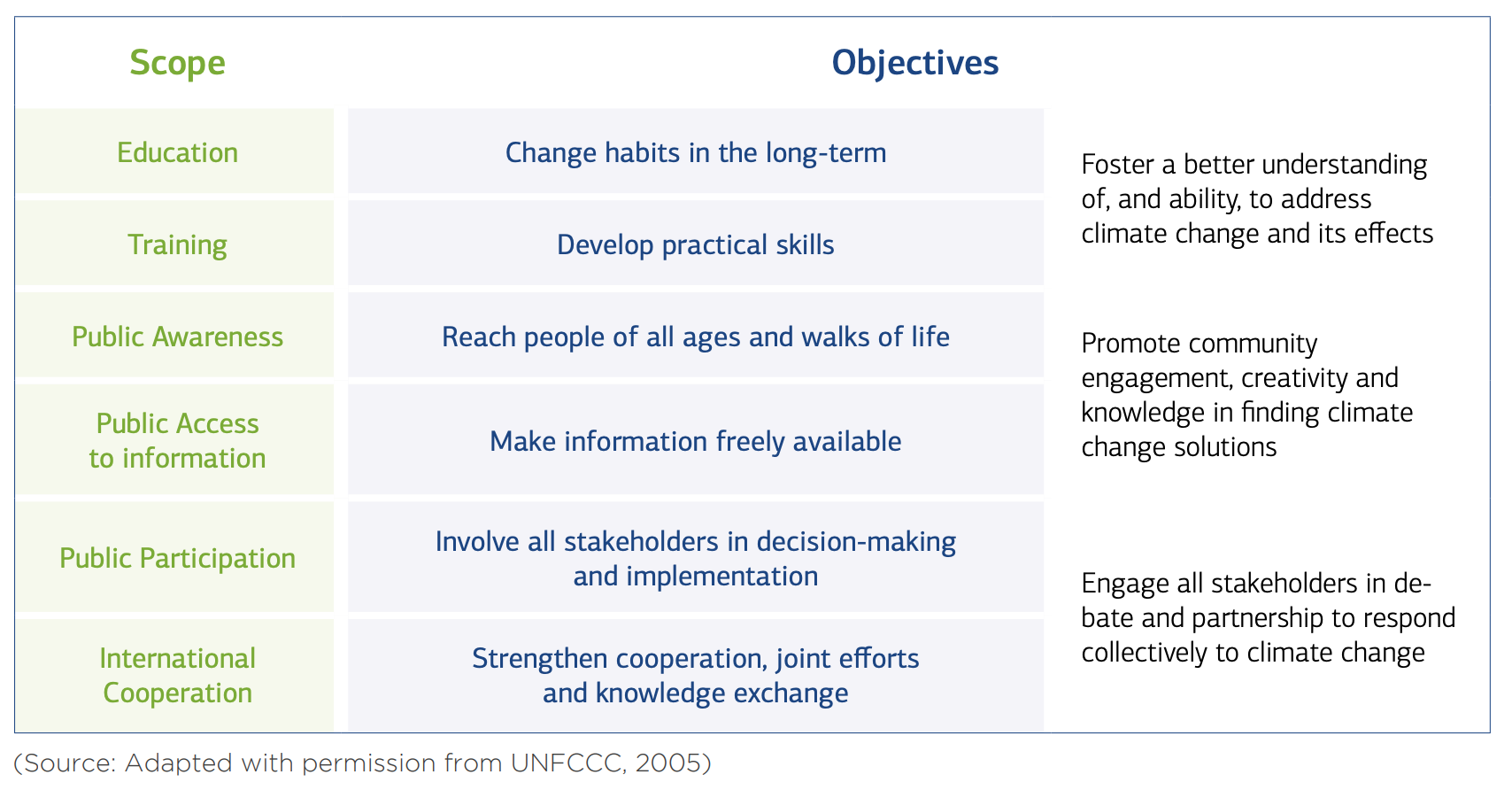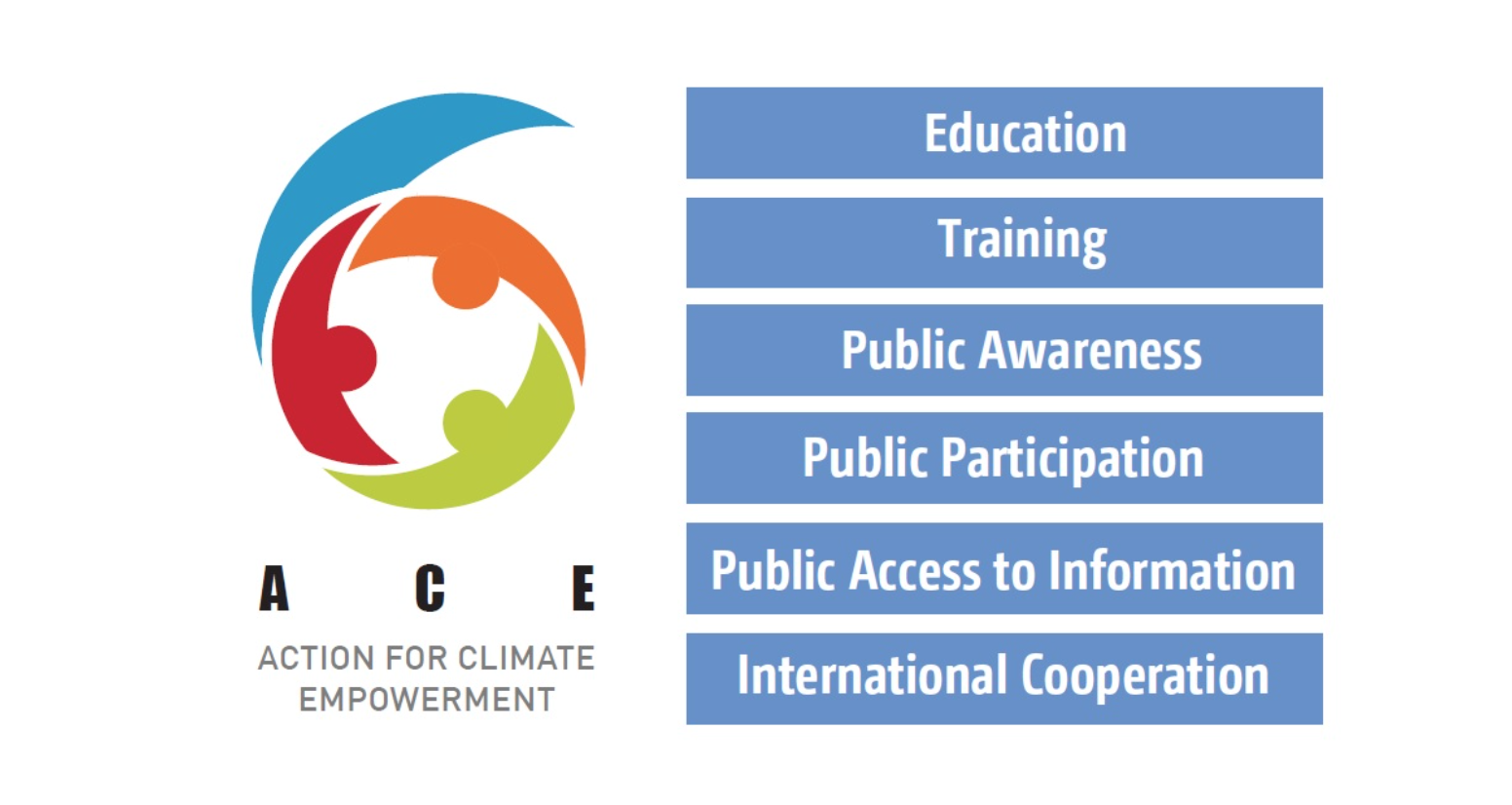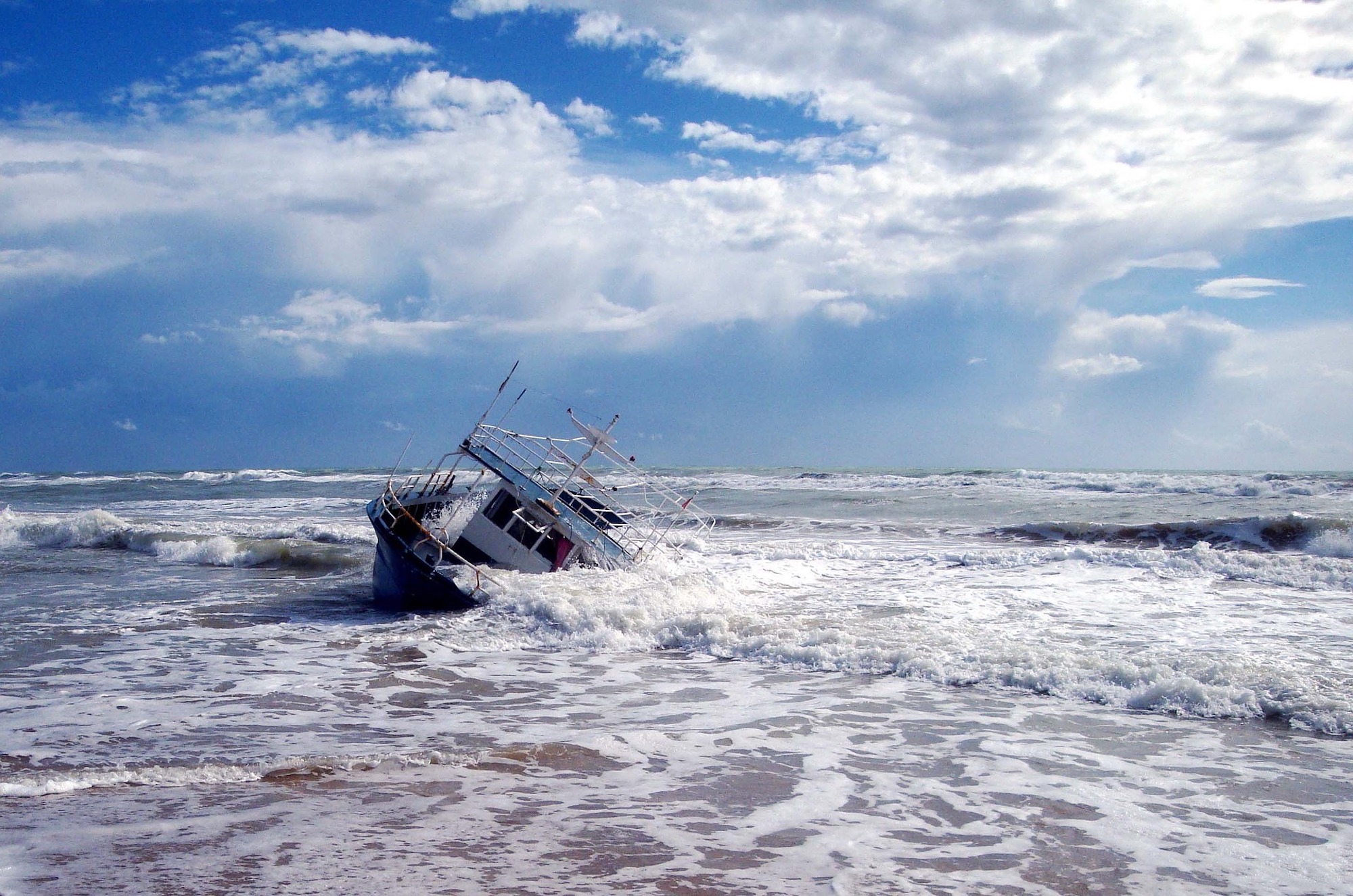Action for Climate Empowerment (ACE) is a term adopted by the United Nations Framework Convention on Climate Change (UNFCCC) in reference to the goal of empowering all members of society to engage in climate action, through education, training, public awareness, public participation, public access to information, and international cooperation on these issues.
This has come to include a wide variety of initiatives to find and implement solutions for climate change which range from events like the Young and Future Generations Day at COPs the Dialogues on Action for Climate Empowerment and selecting National Focal Points for ACE.
So, what exactly is ACE, how does it work and why has it taken a key role a the recent COP in Glasgow with policymakers insisting on action for climate empowerment in the UNFCCC process?
What is Action for Climate Empowerment?
In simple terms, ACE is a voluntary work stream under the UNFCCC that looks to facilitate high impact action against climate change.
ACE seeks to shift the focus of climate strategies on members of society that are often underrepresented, with a particular emphasis on youth engagement, which formed an integral part of ACE strategies at the COP26 in Glasgow and Pre-COP26 in Milan.
“The over-arching goal of ACE is to empower all members of society to engage in climate action, through education, training, public awareness, public participation, public access to information, and international cooperation on these issues”, reads the UNFCCC websites description.
The common objective of increasing national efforts to educate, empower and engage all members of society is anchored in UNFCCC’s Article 6 as well as in Article 10 (e) of the Kyoto Protocol and Article 12 of the Paris Agreement.
In fact, the term ACE was adopted as a more accessible and clear way of referring to efforts related to the implementation of Article 6 of the UNFCCC, also so as to not create confusion with Article 6 of the Paris Agreement.
Furthermore, ACE elements can be found in Article 12 of the Paris Agreement which acknowledges the need for climate change education, training, awareness, and participation to enhance action on climate change, as this is essential to scale up climate action, or in the Sustainable Development Goals number four, thirteen and sixteen.
In this regard, ACE is about helping all members of society understand the need for ambitious climate policies and at the same time foster active participation where people can voice their informed opinion on what climate action should look like.
Furthermore, ACE also calls for countries not only to implement national strategies but also to cooperate in this process, through the exchange of information and best practices, and strengthening of national institutions.

Why is it important?
Overall ACE covers two key aspects of environmental democracy: the right of access to information, and the right to participation in decision-making on the environment.
The assumption is that not only is it essential to have everyone on board if a transition to a low carbon economy is possible but also that some of the key solutions and innovations can be obtained by leveraging underrepresented members of society that can bring transformative change if given the opportunity.
For example, the emphasis on ACE for youth also stems from a recognition of their key contributions to the climate discourse. Through ACE, parties hope to leverage these efforts and empower young people to engage in meaningful climate action.
Double fault or ace in Glasgow?
A major, and seldom talked about, achievement of the COP26 is the 10-page Glasgow work programme on Action for Climate Empowerment (ACE), adopted to replace the Doha ACE work programme which ran from 2012.
In practical terms, nations will continue to select and support National Focal Points that help establish a long-term, strategic and country-driven approach to ACE, whereby each country integrates relevant activities into existing climate change adaptation and mitigation programmes.
For example, the link between ACE initiatives and the energy transition is a hot topic with some pointing to the potential of the Glasgow ACE Work Programme to reinvigorate the clean energy transition by strengthening the participation of citizens, local communities, women, and indigenous peoples in energy decision-making, creating powerful tools for convincing decision-makers to undertake ambitious, just clean energy objectives and orientate them to fulfil them with the widest societal ownership.
As the meeting in Glasgow was the first ACE work programme adopted since the adoption of the Paris Agreement in 2015, many had high hopes as to what it could achieve. In particular, the hope was that the Glasgow work programme on ACE would also include a direct reference to human rights.
However, Saudi Arabia put up strong opposition to this, ultimately ensuring that rights-based language was not included in the final text.
Mexican negotiator, Camila Zepeda, voiced her disapproval, stating that: “Nevertheless, we want to express our deep concern about the removal of human rights, gender-responsive and intergenerational equity references from the guiding principles of the 10-year-long Glasgow Work Programme of Action for Climate Empowerment. We are extremely disappointed that such an outcome”.
However, young participant Hailey Campbell concludes that, although not perfect, “young people were acknowledged as agents of change who deserved to be included in climate decision-making processes at the national and international levels. In fact, the text mentions young people more than 15 times and includes most of our youth inclusion requests. Parties even shared their excitement to collaborate with us on designing the ACE Action Plan at the June 2022 UN Climate Change work session in Germany.”







